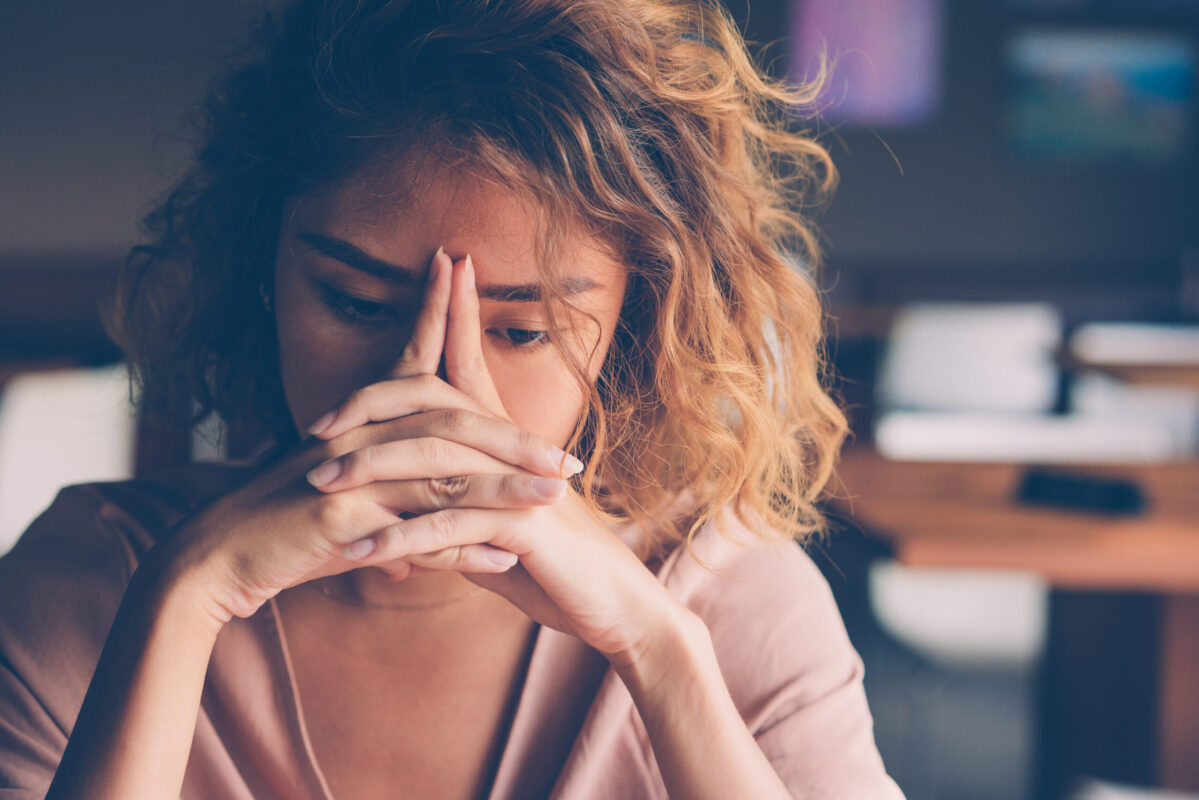In recent years, burnout culture has become a popular way to describe the emotional exhaustion we as a community feel. Essentially, there comes a point where people tire of focusing on a goal and/or simply give up.
The concept was traditionally applied to the workplace, says Dr. Deborah Gatlin, medical director at BlueCross BlueShield of Tennessee. But recently it’s become relevant to more than that.
“People are feeling disconnected and exhausted when it comes to their work, health and safety,” says Dr. Gatlin. “COVID-19 added a tremendous amount of stress to everyone’s lives, and it put a lot of distance — emotional and physical — between us. That takes a toll on your ability to keep caring about the things you need to care about.”
Burnout culture in 2020
When people started working from home, there was an automatic disconnect from co-workers. On top of that, there was added worry about contracting the disease, providing an educational environment for children and being disconnected from family and friends.
In short, 2020 created the perfect storm for burnout.
“Looking at all we’ve had to deal with, it’s no wonder we’re exhausted!” says Dr. Gatlin. “Don’t be hard on yourself for that. Instead, acknowledge the difficulty you’re having and take small steps to change things.”
What are the components of burnout culture?
When it comes to the workplace, the 3 indicators of burnout are:
- Emotional exhaustion, or feeling overextended and drained by others
- Depersonalization, or developing a cynical attitude toward people you interact with, and
- Reduced personal accomplishment, or a decline in your sense of achievement and ability.
While those don’t all translate exactly to home life, feeling drained, cynical or unaccomplished can.
What are the signs of burnout?
Most of the time, burnout develops gradually.
Look for:
- Fatigue and exhaustion
- A lack of motivation
- Symptoms of depression
- A perception that you’re being rejected or judged by people in your life
- A sense of falling short or failing to meet high standards set by yourself or others
- A feeling that nothing you do makes a difference
“So many people are asking: ‘What’s wrong with me?’” says Dr. Gatlin. “Most of the time, the answer is ‘nothing.’ Don’t condemn yourself for feeling apathetic now and then. Just focus on fixing it, starting by talking with your primary care provider, especially where feelings of depression are concerned. ”
3 ways to fight emotional burnout
1. Work
Focus on connecting virtually with coworkers, and ask for help or guidance when you need it.
“If you’re feeling frustrated or uninspired, set up a meeting with your supervisor or your team to talk about roadblocks,” Dr. Gatlin says. “We take for granted how much seeing people in the hallway and just chatting allows us to communicate, vent or work through problems. We have to be proactive about that now.”
You can also foster that sense of community by participating in your company’s virtual events.
“So many companies have gotten creative during this time,” says Dr. Gatlin. “At BlueCross, our employees are participating in virtual yoga classes and exercise programs; the behavioral health department started a book club; and employees are leading classes on all kinds of things. For example, we had one on women’s skincare and makeup tips — it doesn’t all have to be formal or work-related! Have fun with it.”
Ask your employer what virtual opportunities they offer. If none are available, consider starting your own group.
2. Health
When it comes to health, burnout happens when you feel the burden of an activity outweighs the benefits — whether it actually does or not.
“It takes energy to stay healthy, especially when it comes to chronic conditions,” says Dr. Gatlin. “When you’re stressed or lacking in resources, it’s easy to prioritize other things and stop seeking treatment. But that can have serious negative health outcomes.”
Burnout can happen with any health condition, but common examples include those who are:
- Struggling with substance abuse
- Managing chronic conditions like diabetes or high blood pressure
- Receiving ongoing treatments for cancer, HIV or other diseases
- Trying to quit smoking
- Attempting to lose weight
Whatever your issue, says Dr. Gatlin, don’t go it alone.
“Share your feelings with your family or friends, talk to your doctor, and seek out support groups,” she says. “No matter what you’re going through, there’s someone out there who understands.”
3. Safety
When it comes to COVID-19, burnout happens slowly, even to people with the best of intentions.
“The holidays are a social time, so we want to be out shopping, going to parties or seeing family,” she says. “But the risk of getting or spreading COVID-19 now is just as high — if not higher — than it was at the beginning of the pandemic. And with people being indoors because of colder weather, it’s even more dangerous. Now is the most important time to stick to what’s working.”
If you need an emotional recharge, says Dr. Gatlin, know that the end is in sight.
“The vaccine is coming, so there is a light at the end of the tunnel,” she says. “Wear your mask, practice social distancing, wash your hands, and model good behaviors for your kids. And just hang on a little bit longer.”
More from WellTuned and BlueCross
- BlueCross BlueShield of Tennessee’s COVID-19 resource site
- Depression during COVID-19: 6 steps for taking control of your mental health
- Tennessee guide to traveling and exploring safely during COVID-19
Get more information about specific health terms, topics and conditions to better manage your health on bcbst.com. BlueCross BlueShield of Tennessee members can access wellness-related discounts on fitness products, gym memberships, healthy eating and more through Blue365®. BCBST members can also find tools and resources to help improve health and well-being by logging into BlueAccess and going to the Managing Your Health tab.


